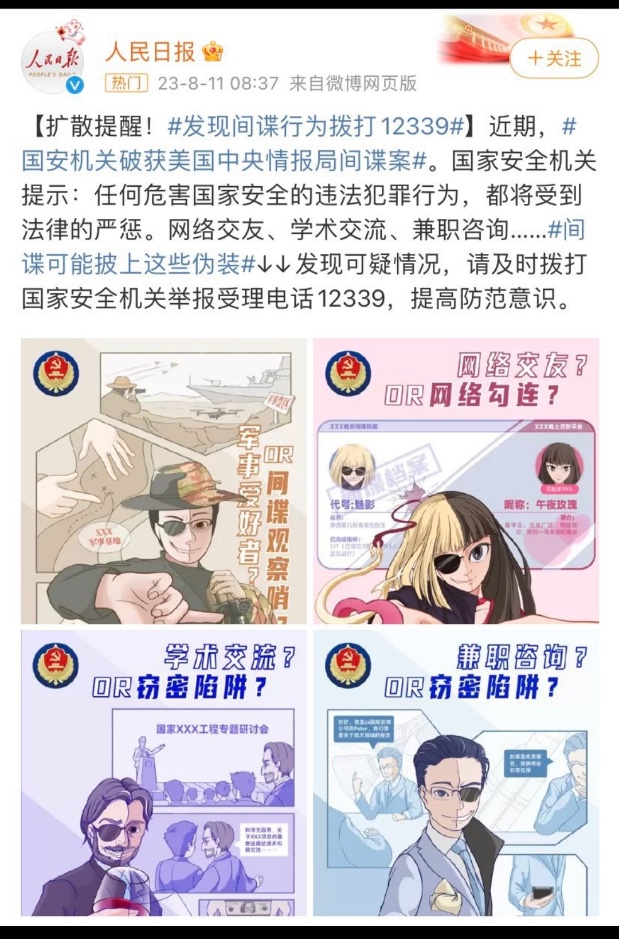Language and politics: The use of English "OR" in Chinese official propaganda
Lingua Franca 2023-08-13
From the weibo of People's Daily (Rénmín rìbào 人民日報):
Here are all four pairs of questions separated by English "OR":
1.
jūnshì àihàozhě ?OR jiāndié guāncháshào ?
军事爱好者? OR 间谍观察哨?
"Military enthusiasts? OR Spy observation sentinel?"
2.
wǎngluò jiāoyǒu ?OR wǎngluò gōulián ?
网络交友? OR 网络勾连?
"Online dating / friend-making? OR Online colluding?"
3.
xuéshù jiāoliú ?OR qièmì xiànjǐng?
学术交流? OR 窃密陷阱?
"Academic exchange? OR Traps for stealing secrets?"
4.
jiānzhí zīxún ?OR qièmì xiànjǐng?
兼职咨询? OR 窃密陷阱?
"Part-time consulting? OR Traps for stealing secrets?"
I invite Language Log readers to speculate on why the People's Daily editors so emphatically used "OR" instead of the regular Mandarin alternative conjunctions huò 或 and huòzhě 或者. I have several ideas why they did so, but would prefer to hear what others think first before saying what my thoughts are.
Selected readings
- "Choice-type questions" (2/12/17)
- "Questions and conditionals" (11/21/09)
- "Questions and answers" (8/22/13)
[h.t. Kiewwoo Goh; thanks to Zihan Guo]
